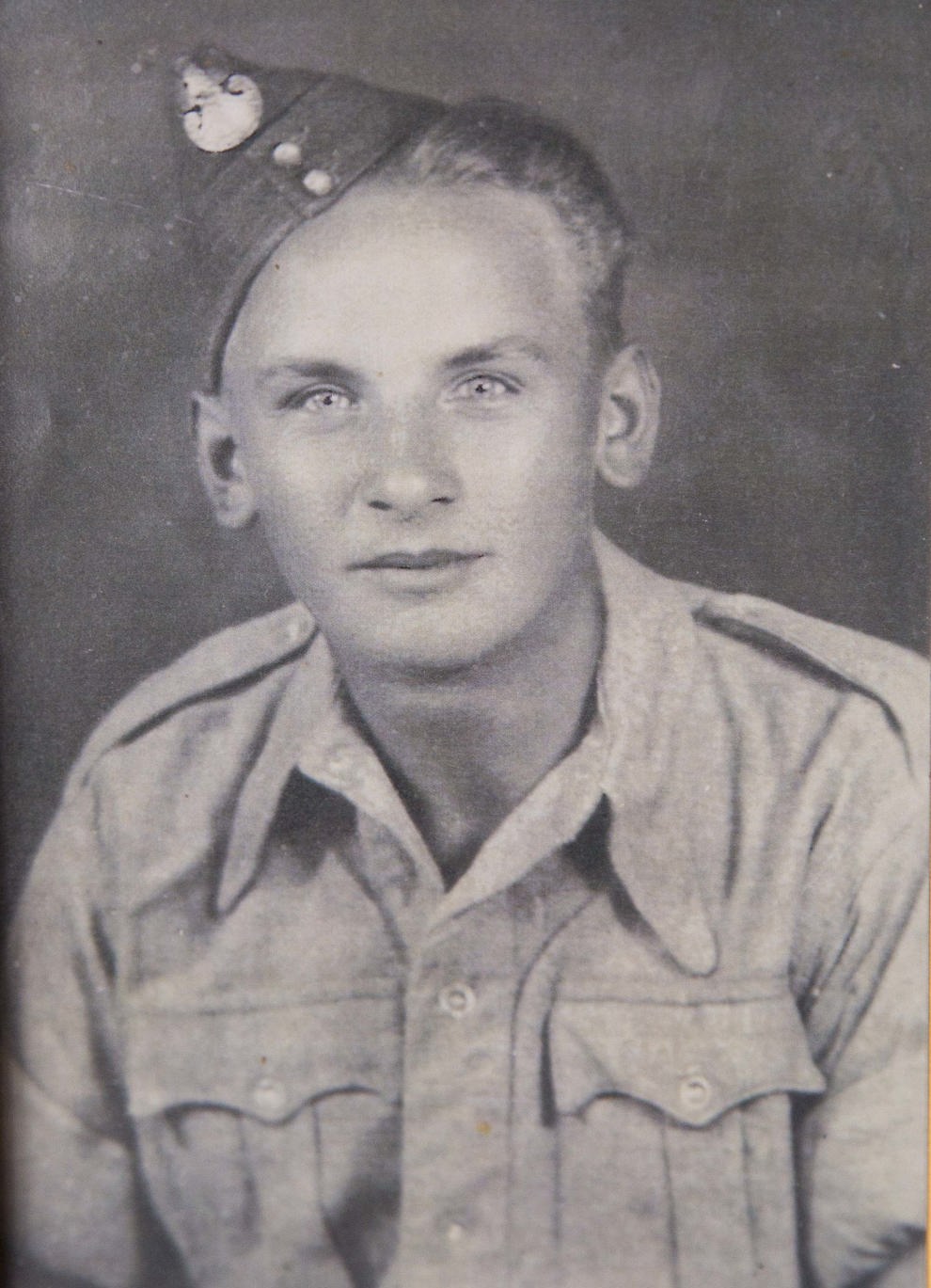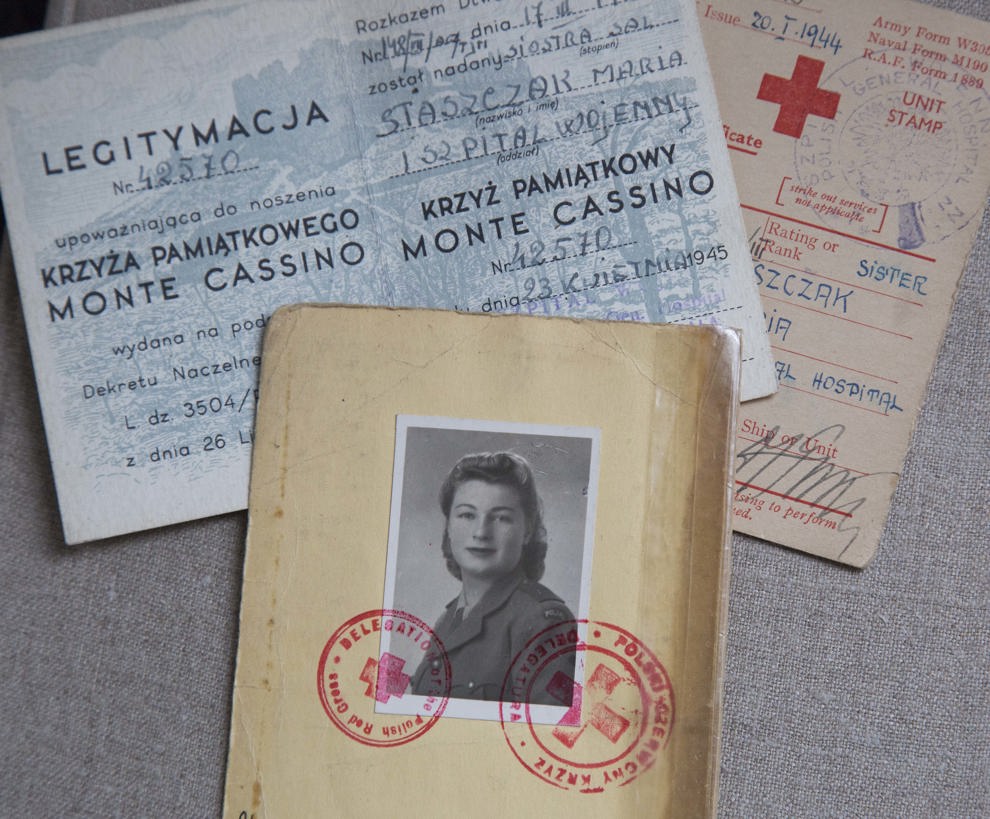The last time Maria Kowalska and Waclaw Domagala met she was a 21-year-old nurse and he was a teenage soldier who had just had a leg amputated.
A cheery “Good Morning, Sister” evaporated 75 years of separation in a remarkable meeting in a Devon care home earlier this year. Maria Kowalska didn’t recognise the man in the wheelchair, but Polish war hero and Blesma Member Waclaw Domagala never forgot the “angel” who nursed him after he was wounded in the World War II Battle of Monte Cassino.
“I knew it was her the moment I saw her,” he says. “She was one of the nurses who helped me and I am so grateful to all of them. How could I forget her?”
Waclaw fought in the Italian campaign with the 2nd Polish Corps, which suffered 923 deaths, 2,931 injuries, and 94 troops missing in action as a result of the conflict. Maria was a ward sister at the No. 1 Polish Hospital, treating wounded troops throughout the 123 days of fighting until the German lines broke and the route to Rome was opened.
“No-one had called me ‘Sister’ for a long time, so I thought: ‘My goodness, who is that?’” says Maria, who, like Waclaw, settled in England after the war.
“It was only my second day as a resident at the Ilford Park Polish Home and I never expected anything like that to happen. I didn’t recognise Waclaw at first, but then he started talking about Monte Cassino. It was incredible to see him after all this time. I looked after the ward where the soldiers recovered, but would also help out in theatre. I remember Waclaw because it was so sad to see a young man lose a leg. He was only 19. I knew he had survived and had been sent to Scotland to recover, but that was all I knew. There were so many bad injuries to so many young men.”

A strong bond after 75 years
Today, Maria needs the support of a walking frame, while Waclaw uses a wheelchair and his memory is clouding with dementia. But after a lifetime apart they still have a strong bond, and they now have rooms close to each other at the Ilford Park Polish Home, which was established after WWII by Prime Minister Winston Churchill as a symbol of the country’s debt to the Polish troops who fought and died for the Allied cause.
It is the only home still operated by the Ministry of Defence, through Veterans UK, and is an astonishing microcosm of the impact of Nazi and Russian control over Poland during WWII. Its 85 residents remember street executions, hangings, persecution in the ghettos, starvation, relatives lost to the concentration camps, and forced marches in the harsh winters without food.
But above all, they remember the indomitable spirit of their fellow countrymen and women. Maria’s memory is sharp and she keeps her British Army and Polish hospital identity cards, in her maiden name of Staszczak, among mementos in her room at the Home near Newton Abbot.
Like millions of people, her life changed forever as a result of the war. A boarding school girl raised in south-east Poland, she was destined for a professional career but was transported to a Russian work camp at the outbreak of the war. Tens of thousands of Poles were sent to harsh camps before getting the chance to enlist with the free Polish forces that were an integral part of Allied resistance. Maria trained as a nurse and was posted to Palestine and Afghanistan, where she worked closely with top surgeons before transferring to southern Italy as the Allies pushed north from Sicily. The fight for the strategic Monte Cassino, about 80 miles south of Rome, resulted in more than 200,000 dead and wounded from both sides.
“We took over a school and soon became the biggest hospital in the area,” Maria remembers. “We had anti-aircraft guns on the roof as it was such an important building. I worked there until the hospital transferred to England after the war.”

An incredible place
Meanwhile, Waclaw, who was born in Miechów, was deported to a Siberian labour camp with his family in 1940 before being liberated to join the 5th Kresowa Infantry Division, 2nd Polish Corps. He was awarded a number of military medals and decorations by the British and Polish governments for his actions in WWII, including Poland’s highest military decoration, the Virtuti Militari Class 5.
After he was injured, Waclaw was sent to the UK for rehabilitation, and settled in Bristol. Four years ago, after losing his wife and daughters to cancer, Blesma helped him and arranged for him to move to the Ilford Park Home. Amazingly, Maria married and settled down to raise a family in Wiltshire, less than 60 miles away from Waclaw, but their paths didn’t cross again until both became residents at Ilford Park.
Their reunion is not the first witnessed by staff at the home. Ninety-two-year-old Tad Stopczynski still speaks about the moment Andrew Borowiec came to the Home and they met for the first time since they were teenage members of the Warsaw Uprising. They had fought alongside each other, harrying the Germans and getting supplies to starving families, but were separated after being caught and sent to Prisoner of War camps.
Veterans UK goes to great lengths to create a special atmosphere at the Home, which is known locally as Little Poland. It holds traditional Polish celebrations, has a resident Polish Catholic priest, and serves Polish food. The Home also has signs in Polish and English (its corridors are named Warsaw Street and Gdynia Street), and 40 of the 100 staff are Polish.
Clare Thomas, who is the manager of Ilford Park, says traditional touches such as these help the residents feel comfortable as well as helping with dementia – almost half have some form of the condition – by connecting them with reassuring images and memories.
“This is an incredible place, absolutely one of a kind, with amazing people and staff,” says Clare. “Winston Churchill told Parliament that the nation owed a debt to the Polish people for their actions during WWII and his pledge has never wavered. Many of our residents endured terrible times and it is right that we are here to care for them now. Our newest residents are in their late 70s and were only small children when their families were forced to flee, but Churchill’s promise has been sustained to support them."
“Barely a day goes by at the Home when I don’t hear something utterly remarkable about how the residents survived World War II, and their stories and dignity are humbling for all the staff."
“It was astonishing when Maria and Waclaw met again at the home after all that time apart, but it shows how deep those memories and connections go, and their shared history is so important to their wellbeing now. All the residents here have lived full lives and now have children, grandchildren, and even great-grandchildren who are the focus of their days, but every now and then you get a privileged glimpse of history and the strength of a very special generation.”
We can help
We are dedicated to assisting serving and ex-Service men and women who have suffered life-changing limb loss or the use of a limb, an eye or sight. We support these men and women in their communities throughout the UK. Click the link below to find out the different kinds of support we offer.
Get Support
Leave a comment
Join fellow Members and supporters to exchange information, advice and tips. Before commenting please read our terms of use for commenting on articles.